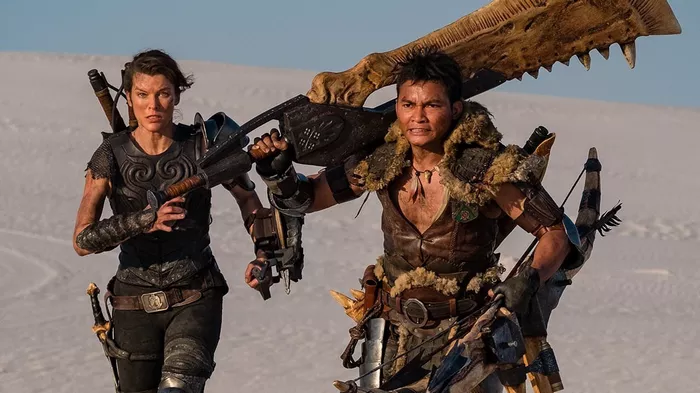In the ever-evolving landscape of film adaptations, certain works manage to transcend their source material, captivating audiences with a fresh perspective. One such instance is the live-action Monster Hunter movie, directed by none other than Paul W.S. Anderson, renowned for his work on the Resident Evil film series. Three years after its theatrical release, the Monster Hunter adaptation has found a new life as a streaming sensation on Netflix, drawing attention for its unique take on the beloved gaming franchise.
A Cinematic Transformation: From Pixels to Live Action
Adapting video games into successful films is a challenging feat, and Anderson, no stranger to this task, brought his signature style to the Monster Hunter universe. While the movie stays true to the core elements of the game, it introduces its own narrative twists, much like Anderson did with the Resident Evil series. The film’s success on Netflix raises intriguing questions about the dynamics of storytelling in the digital age and how streaming platforms can breathe new life into cinematic endeavors.
A Shift in Tone: From Action to Romance
One of the notable departures from the source material is the emphasis on the romantic storyline between the main characters. In the Monster Hunter game, the narrative is primarily driven by action, with the players engaging in epic battles against formidable creatures. However, Anderson chose to infuse the movie with a more emotional core, honing in on the relationship between the protagonists. This departure from the game’s tone might have raised eyebrows among purists, but it has undoubtedly contributed to the film’s success on Netflix, appealing to a broader audience.
Character Depth and Development: Beyond the Game’s Constraints
The Silver Linings Playbook movie made waves by altering key elements from the original book, and similarly, the Monster Hunter film explores new facets of its characters. By delving deeper into the backgrounds and motivations of the protagonists, Anderson adds layers of complexity to their personalities. This character-driven approach not only enriches the storytelling experience but also provides a fresh perspective for those familiar with the game’s lore.
A Change in Setting: From Virtual Realms to the Real World
Just as The Silver Linings Playbook shifted its setting to Pennsylvania, the Monster Hunter movie takes a departure from the fantastical landscapes of the game. Anderson grounds the story in a real-world setting, bringing a sense of tangibility to the fantastical elements of Monster Hunter. This decision not only adds a layer of relatability but also allows the audience to connect more intimately with the characters and their journey.
New Challenges, New Tensions: Gambling Addiction as a Plot Device
Much like the introduction of a bipolar diagnosis in The Silver Linings Playbook, the Monster Hunter film introduces a subplot involving gambling addiction. This narrative choice, centered around the protagonist’s father, injects an additional layer of tension into the storyline. The struggles with addiction provide a humanizing touch to the characters, making their journey not only about hunting monsters but also overcoming personal demons.
Netflix Resurgence: A Second Chance for Cinematic Gems
The success of the Monster Hunter movie on Netflix is a testament to the platform’s ability to resurrect films that may not have reached their full potential in theaters. Streaming services provide a second chance for movies to find their audience, allowing viewers to discover hidden gems long after their initial release. The Monster Hunter adaptation’s newfound popularity highlights the evolving nature of film consumption and the impact of streaming platforms on cinematic longevity.
Conclusion: A Cinematic Evolution
In the realm of film adaptations, the Monster Hunter movie stands as a prime example of how a fresh perspective can breathe new life into established franchises. Paul W.S. Anderson’s directorial choices, reminiscent of his approach to the Resident Evil series, have transformed the Monster Hunter narrative, making it a hit on Netflix three years after its theatrical release. As audiences continue to embrace the film on streaming platforms, it raises intriguing questions about the future of storytelling in cinema and the enduring appeal of well-crafted adaptations. The Monster Hunter movie’s journey from theaters to Netflix exemplifies the cinematic evolution fueled by digital platforms, where a silver lining can emerge even years after a film’s initial debut.

